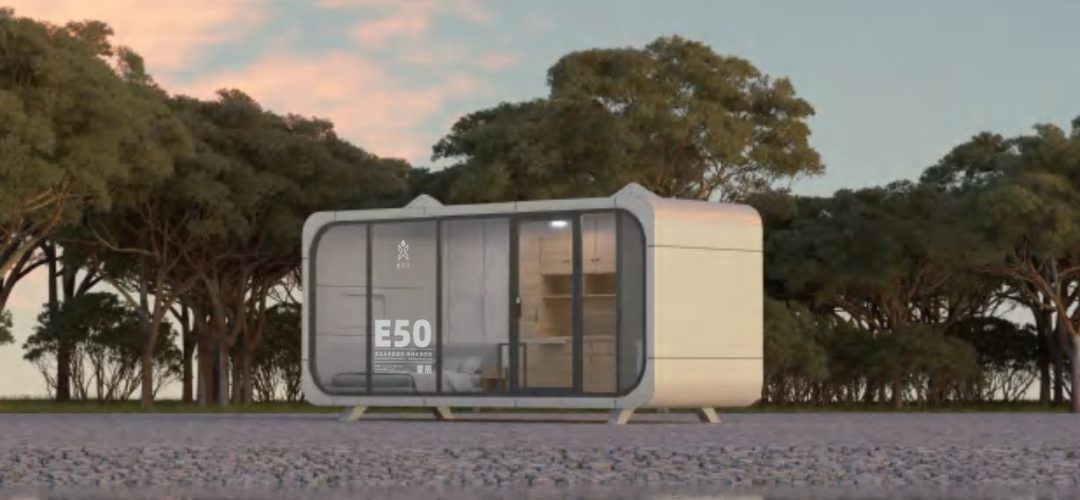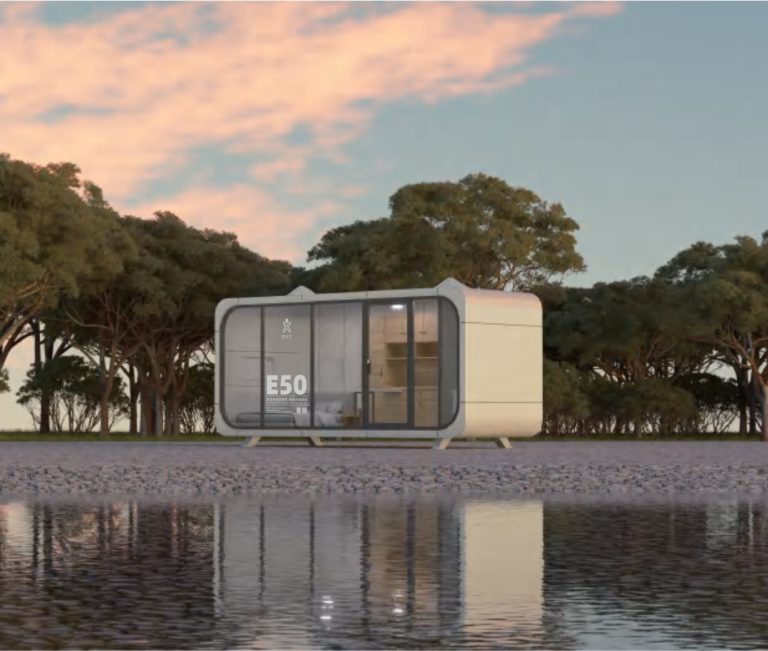
In the evolving landscape of urban living, capsule houses have emerged as a groundbreaking solution to address the challenges of modern housing. These compact, efficient living spaces are designed to maximize utility while minimizing the environmental footprint, making them a perfect fit for contemporary lifestyles. Their innovative approach combines functionality with affordability, appealing to a diverse range of people from minimalists seeking simplicity to city dwellers looking for a cost-effective alternative to traditional apartments. Capsule houses encapsulate the essence of modern living: smart, sustainable, and stylish.
This article delves into seven key questions that will help you determine if a capsule house is the right fit for you. From evaluating your lifestyle needs to understanding the practicalities of living in such a compact space, these questions will guide you through the decision-making process. By considering these aspects, you’ll gain a clearer perspective on whether the unique benefits of a capsule house align with your personal preferences and requirements.
Let’s dive in!
Table of Contents
Are Capsule Houses Suitable for Both Small and Large Families?
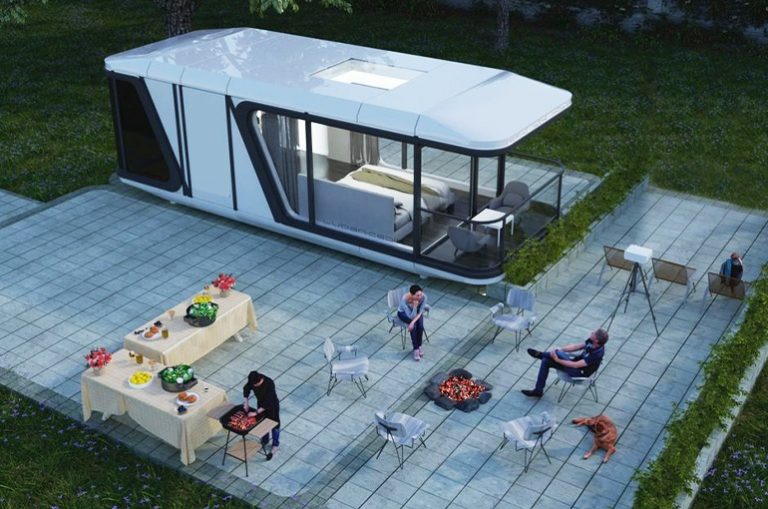
Capsule houses offer remarkable design flexibility, making them suitable for both small and large families. The modular nature of these homes allows for customized layouts that can be tailored to the specific needs of the occupants. For smaller families, a compact design with essential amenities can create a cozy and efficient living environment. On the other hand, larger families can benefit from multi-room configurations that provide ample space for everyone. The versatility in design means that capsule houses can adapt to various family sizes without compromising comfort or functionality.
Scalability is another key feature that makes capsule houses appealing to families of all sizes. The ability to add or remove modules allows for easy expansion or reduction of living space. As a family grows, additional modules can be seamlessly integrated to accommodate new members. Conversely, if the need for space decreases, modules can be removed or repurposed. This scalability ensures that capsule houses can evolve with the changing dynamics of a family, providing a long-term housing solution that is both flexible and adaptable.
How Much Does a Capsule House Cost?
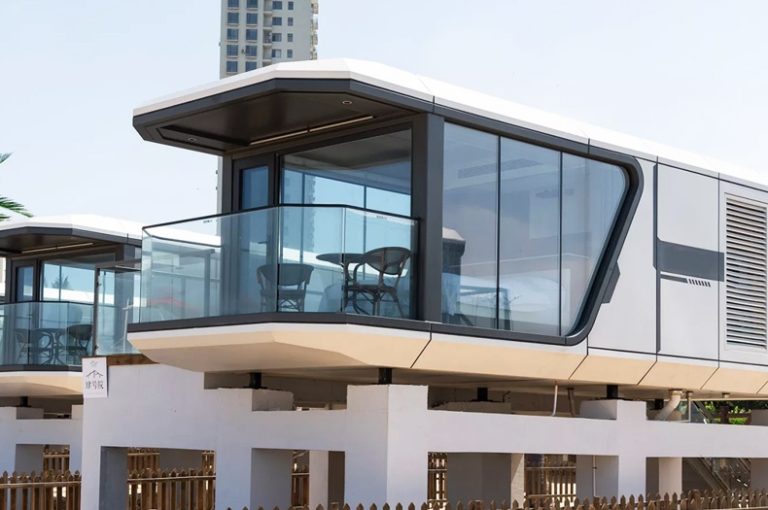
The initial costs of a capsule house can vary widely based on several factors, including the base price and customization options. Typically, the base price for a standard, no-frills capsule house starts at around $20,000 to $50,000. However, this cost can increase significantly with the addition of custom features, high-end finishes, and advanced technologies. Customization options such as additional modules, upgraded materials, and smart home systems can drive the price upwards, potentially reaching $100,000 or more for a fully personalized and well-equipped unit. It’s important for buyers to consider their specific needs and budget when planning for a capsule house to ensure they achieve the desired balance of cost and functionality.
In addition to the initial purchase price, ongoing costs for maintaining and operating a capsule house are relatively low compared to traditional homes. Due to their compact size and efficient design, capsule houses typically require less energy for heating, cooling, and electricity, leading to reduced utility bills. Maintenance costs are also generally lower, as the smaller footprint means fewer areas needing upkeep and repairs. However, it’s essential to factor in costs for routine maintenance, potential module upgrades, and any fees associated with the land on which the capsule house is placed. Overall, the streamlined nature of capsule houses offers an economical living solution with manageable ongoing expenses.
Are Capsule Houses Eco-Friendly and Energy Efficient?
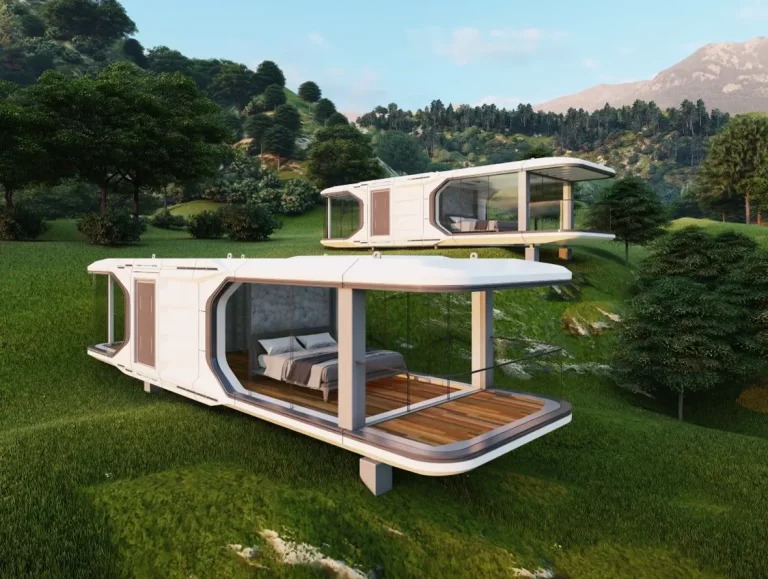
Capsule houses are designed with sustainability in mind, often utilizing eco-friendly materials that minimize environmental impact. Commonly used materials include recycled steel, sustainably sourced wood, and non-toxic, biodegradable insulation. These materials not only reduce the carbon footprint during construction but also enhance the overall durability and longevity of the structures. Additionally, the compact size of capsule houses means fewer raw materials are needed, further contributing to their environmental benefits. By prioritizing sustainable building practices, capsule houses offer a greener alternative to traditional housing options.
Energy efficiency is a hallmark of capsule house design, incorporating features that significantly reduce utility costs and carbon footprints. These homes are often equipped with advanced insulation, energy-efficient windows, and LED lighting to minimize energy consumption. Many capsule houses also include renewable energy systems such as solar panels and rainwater harvesting systems, which further decrease reliance on non-renewable resources. The combination of these energy-saving features ensures that capsule houses not only provide a comfortable living environment but also promote a more sustainable and cost-effective lifestyle.
What is the Expected Lifespan of a Capsule House?
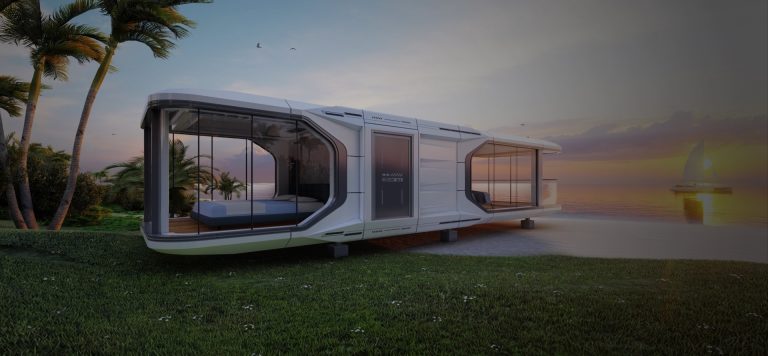
The expected lifespan of a capsule house largely depends on its build quality, which is typically high due to the advanced construction methods and durable materials used. Capsule houses are often constructed with robust, weather-resistant materials such as galvanized steel, high-grade concrete, and sustainable, treated wood. These materials are chosen for their strength and resilience, ensuring that the structures can withstand various environmental conditions and wear over time. Additionally, modern construction techniques, including precision engineering and modular assembly, contribute to the overall durability and longevity of capsule houses.
Most capsule house manufacturers offer comprehensive warranties and after-sales service to support their longevity claims. These warranties typically cover structural integrity, material defects, and sometimes even maintenance services for a specific period, usually ranging from 10 to 25 years. After-sales services often include regular inspections, repair services, and customer support to address any issues that may arise. Such robust warranty and service offerings provide homeowners with peace of mind and help maintain the capsule house in optimal condition throughout its lifespan.
When compared to traditional homes, capsule houses offer competitive durability and longevity. While a well-maintained traditional home can last for several decades, capsule houses, with their high-quality materials and modern construction methods, can achieve similar, if not longer, lifespans. Moreover, the ease of maintenance and modular design of capsule houses allow for straightforward repairs and upgrades, potentially extending their usability beyond that of conventional homes. This comparative durability, combined with lower maintenance costs, makes capsule houses a valuable and sustainable housing option.
Can I Legally Build a Capsule House in My Location?
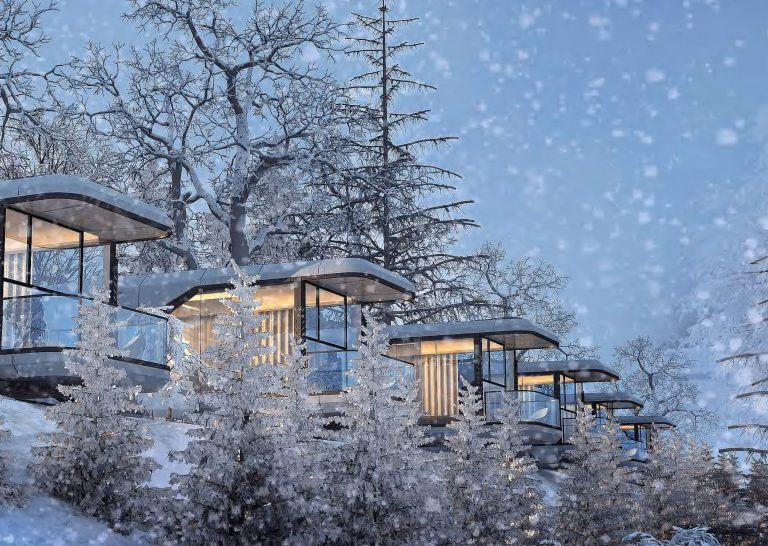
The ability to legally build a capsule house in your location largely depends on local zoning laws and building codes, which can vary significantly from one region to another. Zoning laws regulate land use and may restrict where certain types of structures, including capsule houses, can be built. Some areas may have specific requirements for minimum dwelling sizes, types of permissible constructions, or designated residential zones that could impact your plans. Therefore, it is essential to research and understand the zoning regulations in your intended location before proceeding with any building plans.
The permitting process for building a capsule house involves several steps to ensure compliance with local regulations. Typically, this process includes submitting detailed plans and specifications of the capsule house to the local building authority, paying necessary fees, and undergoing inspections at various stages of construction. Permits may be required for electrical, plumbing, and structural work, and each must be obtained and approved before moving forward. Familiarizing yourself with these requirements and preparing all necessary documentation can help streamline the process and avoid potential delays.
To ensure full legal compliance, it is advisable to consult with local authorities or legal experts who are familiar with the regulations in your area. They can provide valuable guidance on the specific requirements and help navigate any legal complexities that may arise. Engaging with professionals early in the planning stage can help identify potential issues and ensure that your capsule house project meets all legal standards, ultimately paving the way for a smoother construction process and a legally compliant home.
How Customizable Are Capsule Houses?
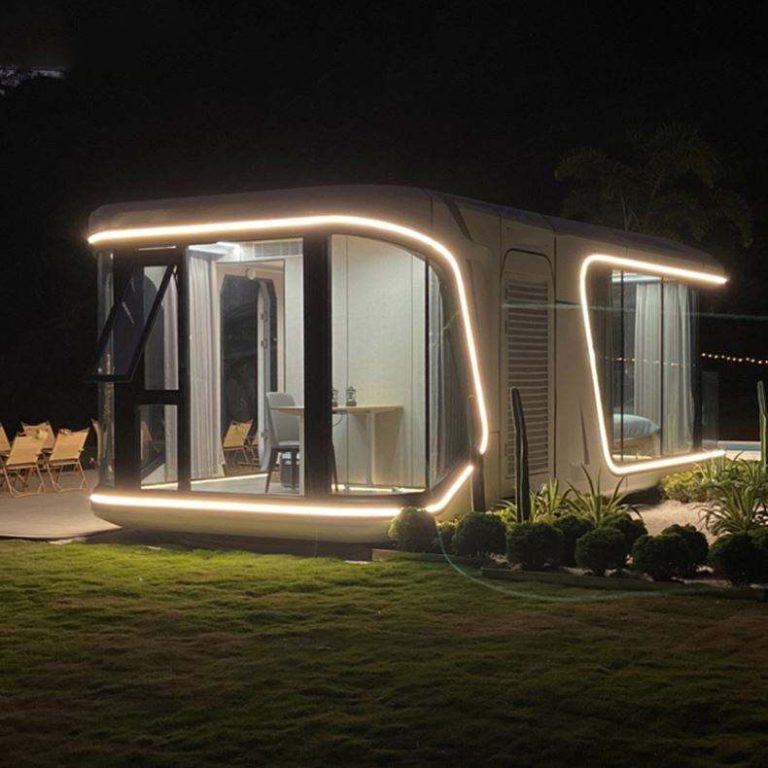
Capsule houses offer remarkable design flexibility, allowing buyers to tailor their homes to meet specific preferences and needs. From exterior finishes to interior layouts, owners can choose a variety of options to personalize their living space. Exterior customization might include selecting different materials, colors, and architectural styles to match aesthetic preferences or environmental considerations. Inside, the layout can be adjusted to include various room configurations, storage solutions, and multifunctional furniture to maximize the use of space. Buyers can also incorporate smart home technologies and sustainable features such as solar panels and energy-efficient appliances to further personalize their capsule house.
Numerous examples showcase the extent of customization possible with capsule houses. Some owners have transformed their capsule homes into chic urban retreats with minimalist designs, while others have opted for rustic, nature-inspired aesthetics to blend with rural surroundings. Case studies highlight families adding extra modules to create additional bedrooms or home offices, and individuals converting small spaces into cozy, multifunctional areas with foldable furniture and hidden storage. These examples demonstrate how versatile capsule houses can be, accommodating various lifestyles and tastes.
Despite the high level of customization, there are some limitations to consider. Structural modifications may be restricted to maintain the integrity and safety of the capsule house. Local building codes and zoning laws might also impose certain constraints on exterior designs or the addition of certain features. Additionally, customization options might vary depending on the manufacturer or model chosen. Setting realistic expectations and consulting with designers or manufacturers can help ensure that your vision aligns with what is feasible within these parameters.
What Is the Resale Value of a Capsule House?
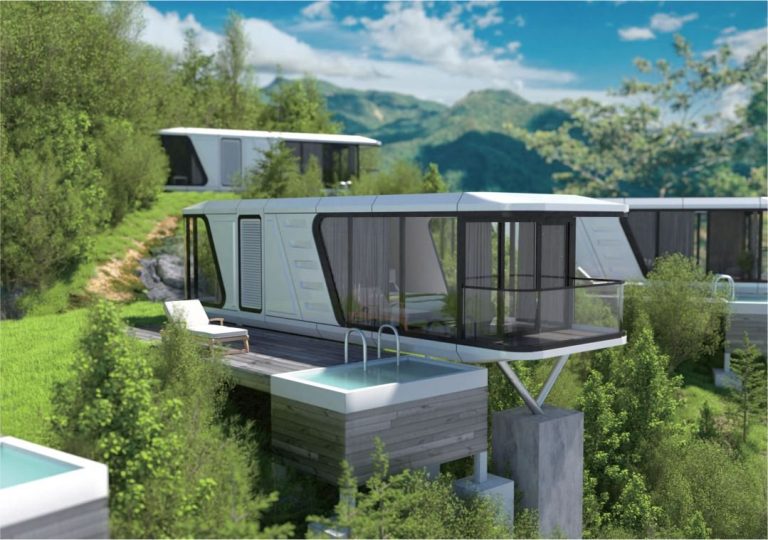
The resale value of a capsule house can be influenced by current market trends, which reflect the growing interest in unique and sustainable living solutions. As urban areas become more crowded and housing prices rise, the demand for affordable, efficient housing like capsule houses is increasing. This trend can positively impact resale values, as more buyers look for cost-effective and environmentally friendly alternatives to traditional homes. Additionally, the modern design and innovative features of capsule houses often appeal to younger, eco-conscious buyers, further boosting their marketability.
When considering investment potential, capsule houses can offer a solid return on investment, especially in areas where housing demand outstrips supply. Their lower initial cost compared to conventional homes, coupled with reduced maintenance and operational expenses, can make them an attractive option for both homeowners and investors. In various economic climates, capsule houses tend to retain value due to their practicality and appeal to a niche market seeking sustainable living options. However, it’s essential to stay informed about local real estate trends and ensure that the capsule house meets all legal and market requirements to maximize its resale potential.
Conclusion
Capsule houses represent an innovative and versatile housing solution suitable for a wide range of buyers. They offer design flexibility that caters to both small and large families, scalability for changing needs, and a variety of customization options. Their eco-friendly and energy-efficient features provide long-term sustainability and cost savings. Additionally, capsule houses come with durable construction, warranties, and support services that ensure longevity comparable to traditional homes. Legal considerations such as zoning laws and permits need to be addressed, but with proper guidance, building a capsule house can be a straightforward process. Their resale value is supported by growing market trends favoring sustainable and affordable housing.
If you’re intrigued by the possibilities that capsule houses offer and want to learn more, don’t hesitate to reach out. Whether you’re considering making a capsule house your home or investing in this innovative housing solution, we can provide detailed information and assistance to help you make an informed decision. Contact us today to explore how a capsule house can meet your unique needs and enhance your lifestyle.

Luban Cabin Signs Exclusive Agent for Capsule Cabin
Capsule cabin house innovation is entering a new global chapter as Luban Cabin officially signs exclusive agents to expand its international market presence. This milestone reflects strong global confidence in modular living solutions and highlights Luban Cabin’s growing influence across multiple regions. Table of Contents Capsule cabin house strategy strengthens global reach The
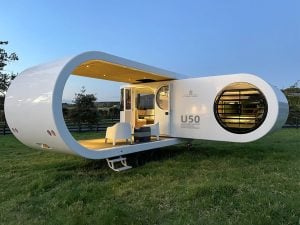
Why Capsule Tiny Homes Are Gaining Popularity
Capsule tiny homes are reshaping modern living by combining intelligent design, flexible use, and contemporary aesthetics, making them increasingly attractive worldwide.
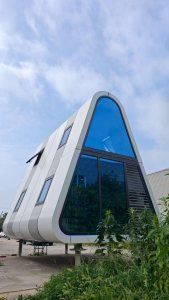
Luban Cabin Capsule Tiny House Starts with Glass
Luban Cabin capsule tiny house redefines capsule living by starting with glass, creating immersive spaces that connect people with nature through intelligent, sealed, and modern design. Table of Contents The Vision Behind Luban Cabin and Glass-Centered Design At the heart of luban cabin philosophy is a clear vision: living spaces should feel
